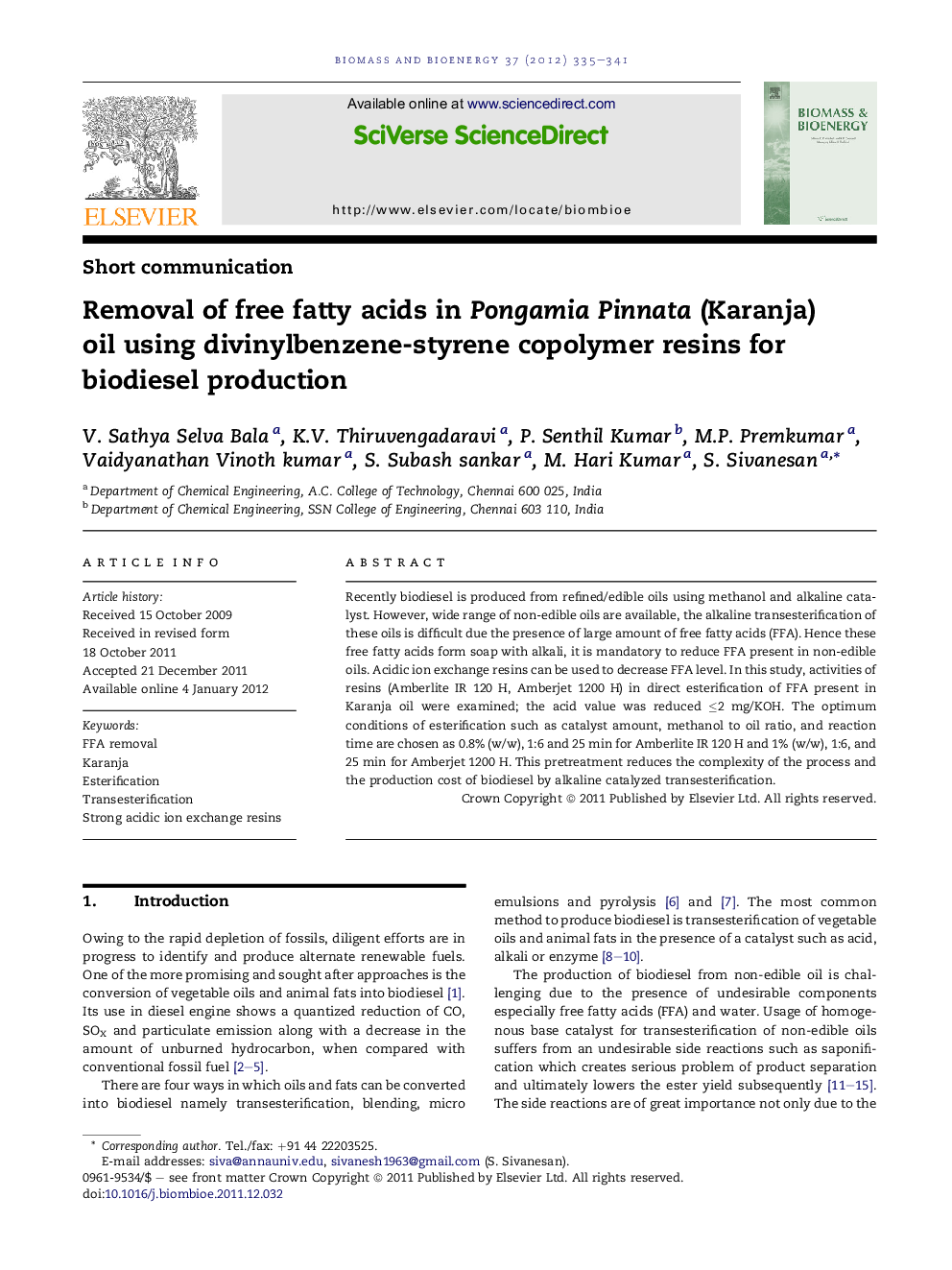| Article ID | Journal | Published Year | Pages | File Type |
|---|---|---|---|---|
| 677627 | Biomass and Bioenergy | 2012 | 7 Pages |
Recently biodiesel is produced from refined/edible oils using methanol and alkaline catalyst. However, wide range of non-edible oils are available, the alkaline transesterification of these oils is difficult due the presence of large amount of free fatty acids (FFA). Hence these free fatty acids form soap with alkali, it is mandatory to reduce FFA present in non-edible oils. Acidic ion exchange resins can be used to decrease FFA level. In this study, activities of resins (Amberlite IR 120 H, Amberjet 1200 H) in direct esterification of FFA present in Karanja oil were examined; the acid value was reduced ≤2 mg/KOH. The optimum conditions of esterification such as catalyst amount, methanol to oil ratio, and reaction time are chosen as 0.8% (w/w), 1:6 and 25 min for Amberlite IR 120 H and 1% (w/w), 1:6, and 25 min for Amberjet 1200 H. This pretreatment reduces the complexity of the process and the production cost of biodiesel by alkaline catalyzed transesterification.
► Aim of this study is to reduce the acid value of Pongamia Pinnata oil below 2 mg KOH/g of oil. ► For that two different ion exchange resins (Amberlite IR 120 H, Amberjet 1200 H) were examined for acid value reduction. ► Reaction parameters were optimized. ► After reducing the acid value biodiesel was produced using conventional alkali catalyst.
